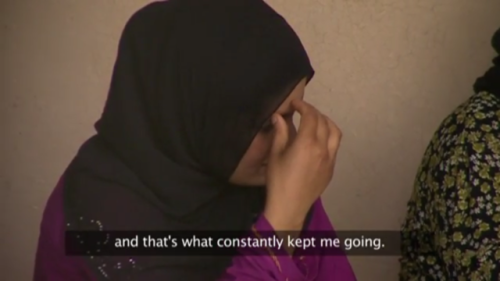m4zlum:Docu-film on female cutting moved Kurdistan lawmakers to ban FGM Two filmmakers spent almost
m4zlum:Docu-film on female cutting moved Kurdistan lawmakers to ban FGM Two filmmakers spent almost a decade reporting the greatest taboo subject in Kurdish society: female genital mutilation. Nabaz Ahmed and Shara Amin persuaded people to talk about the effects of FGM and the film they made helped get the practice outlawed in 2011. And in the last few years the number of girls being mutilated in Kurdistan has fallen by over 60%. It started out as a film about a practice that has afflicted tens of millions of women worldwide. It culminated in a change in the law. Ten years after they embarked on a documentary to investigate the extent of female genital mutilation in Kurdistan, two film-makers have found their work changing more than just opinions in a fiercely conservative part of the world. Partly as a result of the film, the numbers of girls being genitally mutilated in the villages and towns of Kurdistan has fallen by more than half in the last five years.Shara Amin and Nabaz Ahmed spent 10 years on the roads of Kurdistan speaking to women and men about the impact of female genital mutilation (FGM) on their lives, their children and their marriages. It took a lot of time to convince them to speak to us. This was a very taboo subject. Speaking about it on camera was a very brave thing to do.The result was a 50-minute film, A Handful of Ash. When it was shown in the Kurdish parliament, it had a profound effect on the lawmakers.They would just grab the little girls, take them and cut them, and the girls came back home. I can still remember I was sick, infected for three months. I could barely walk after I was cut.A mullah tells the film-makers that Khatana [the Kurdish term for FGM] is a duty; it is spiritually pure. That is the position of the Shafi’i school of Sunni Islam that is practiced by Kurds. It is the same branch of Islamic law that predominates in Egypt, where studies show that up to 80% of women have been mutilated. But FGM is not just confined to some Muslim countries in the Middle East – it is also widespread in parts of Africa and Indonesian. It pre-dates Islam or Christianity and is on record since the time of the Pharaoh.It is about controlling women’s sexuality and keeping them under control.Source: womennewsnetwork, theguardian -- source link
Tumblr Blog : m4zlum.tumblr.com
#fgm#csa#feminism









